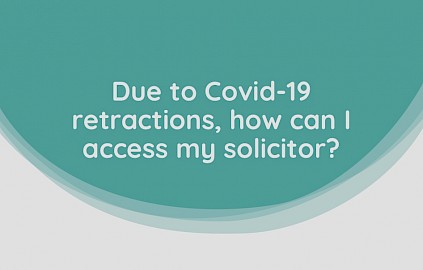Do you have a discitis negligence claim?
The spine is a delicate area, and delays in diagnosing or treating an infection like discitis could result in a serious loss of function and mobility, paralysis, and even death.
If you believe that you have experienced negligent care by a GP, surgeon, consultant, nurse or other healthcare provider, you may be entitled to make a claim for compensation.
Medical negligence and discitis
As the main symptom of discitis is back pain, which can have numerous causes (including simple aging), discitis is often overlooked or misdiagnosed. Diagnosis of discitis is often delayed by between two and six months from the first symptom, which can be catastrophic for the long-term prognosis of a patient.
Diagnosis of discitis requires shrewd judgement to look for signs of infection or inflammation. If suspected, tests should be requested to rule out discitis. The gold standard test is an MRI, as it can pick up inflammation throughout the body, but other tests might include a blood test, bone scan or tissue analysis by way of a biopsy.
Treatment usually involves between six and eight weeks of IV antibiotics to clear the infection and immobilisation to prevent further damage to the spine. Anti-inflammatory medication or steroids may be needed and, in more severe cases, surgery is needed to repair the disc. So, any additional delays to treatment can lead to more severe infection and even mortality [death].
Bringing a discitis negligence claim
The three main reasons someone might bring a discitis negligence case are:
- Failure to investigate symptoms
- Failure to administer the right treatment
- Failure to act on signs of paralysis
Contracting an infection which leads to discitis is not in itself negligent; even if the infection develops after surgery, it is still a known risk and patients should be informed about this in their pre-operative assessment as part of the informed consent process.
Compensation for discitis claims
A misdiagnosed spinal infection like discitis could result in serious complications that impact a person’s ability to work or lead a fulfilled life. Along with compensation for the injuries sustained, there can also be a claim for special damages (financial losses) to account for such things as:
- Life-long private care needs
Discitis can have a serious impact on an individual’s independence and they may require assistance with daily tasks, potentially for the rest of their life. Where family or friends have been providing care services, this can be costed on a commercial basis and future care packages may also be covered.
In some cases, compensation may also be available to cover other reasonable financial losses, such as childcare, dog-walking and gardening/DIY needs.
- Adapted accommodation or vehicle costs
An individual with discitis may require the use of stair lifts, transfer equipment or wheelchair accessibility (widening walkways, lowering sinks and countertops, or moving to a single-story property), to name a few, and may need to adapt their home or vehicle to accommodate those needs. These adaptations can be costly, which is why it is important that they are covered by a compensation claim where appropriate.
- Loss of earnings or congenial employment
If discitis has altered or eradicated your ability to work, you can claim to recover the lost earnings and compensate for the lack of congenial employment (which is to say work that you found enjoyable or satisfying).
We represented one client who had been unable to return to his work as an electrical contractor, which he had enjoyed immensely, and this was taken into consideration for the eventual settlement sum.
Also, if a loved one has reduced their working hours, or given up work, to care for you, the value of this can be accounted for in your claim.
- Future treatment and transport to and from medical appointments
Discitis often requires a long course of intravenous antibiotic therapy, around six to eight weeks, typically given daily at an infusion centre. For someone with reduced mobility, this can be not only very difficult but also very expensive. Compensation can cover mileage and parking, taxi costs or public transportation, as well as the value of someone’s time who has reasonably accompanied you.
- Pain rehabilitation
Discitis can leave an individual with a significant amount of day-to-day pain, and interventions to reduce the impact of that pain can be costly. Whilst some are available on the NHS, more sophisticated pain interventions may need to be privately funded.
- Disability aids
In some cases, the affected party may require mobility aids such as mobility scooters, wheelchairs, ramps, shower seats or transfer discs. In addition, a specialist vehicle might be needed.
See our guide to medical negligence compensation to see examples of other considerations when making a discitis medical claim.
Examples of discitis medical negligence cases
One of our specialist medical negligence solicitors, Miriam Bi, has handled two key discitis cases here at Medical Solicitors, both of which had different causes and outcomes.
Delayed diagnosis of discitis case settles for £530,000 compensation
The first case, settled in February 2022, involved a 48-year-old man who developed discitis after spinal surgery in 2015 that went undiagnosed and untreated for almost nine months, despite having had three MRI scans that noted inflammation and disc depreciation.
After parties formally exchanged their expert reports, the defendant invited the claimant to a Joint Settlement Meeting. This was arranged where an out-of-court settlement of £530,000 was reached on February 14th 2022. As well as general damages, this included claims for loss of congenial employment, care costs, pain rehabilitation, psychiatric therapy, and adaptations to his home, car and mobility aids.
Read more about this discitis case study.
Ongoing case for deceased man who was left paralysed due to discitis diagnosis delays
Miriam is also currently investigating the case of a widow whose late husband became paralysed from the waist down after medics scanned the wrong part of his back.
He experienced a sudden, sharp pain in his upper back and sought medical advice but was told it was muscular. At first, the lower back was scanned only, which led to a delay in diagnosis. His leg then began to feel numb and his GP admitted him to hospital. He showed all typical signs of discitis but due to errors with the MRI scan, the infection went undetected. His neurology deteriorated resulting in permanent loss of movement in his legs.
Working with Medical Solicitors on Your Discitis Negligence Claim
At Medical Solicitors, our niche law firm only handles clinical negligence claims for patients. As your legal partner, we’ll always keep you at the centre, supporting you and guiding you through the process. Our specialist solicitors are compassionate and knowledgeable. We go to great lengths to fully understand a case and we offer no-obligation advice about whether there is a chance of success.
If we recommend going further, you may also be thinking about how you’ll fund the legal costs. We offer Conditional Fee Agreements (No Win, No Fee) so there is nothing to lose in speaking to us about a claim.
All cases are handled on a personal basis and we strive to do everything we can to achieve the maximum compensation to ensure the best possible quality of life for all clients.
Get in touch today to discuss your discitis medical negligence claim with a specialist solicitor.
Please Note: At Medical Solicitors, our team specialise in discitis negligence claims involving healthcare providers in England and Wales and will be happy to extend a helping hand if your case is located in either of these regions. Unfortunately, we do not handle discitis negligence claims outside of England and Wales.














